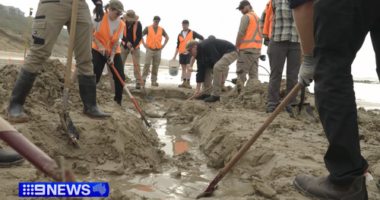Share this @internewscast.com
In a dramatic turn of events, Greens senator Sarah Hanson-Young had previously threatened to compel social media executives to attend an inquiry on online safety after they failed to show up at an earlier session. However, TikTok, Meta, and Snapchat have since agreed to participate in the discussions voluntarily, sharing their perspectives on the newly imposed social media ban without the need for subpoenas.
Despite their compliance, these tech giants have voiced apprehensions regarding the implications of the new legislation. They are particularly concerned about its potential impact on user safety and internet usage patterns among younger audiences.
Woods-Joyce, a noted expert in the field, expressed fears that the ban might inadvertently drive young users towards less regulated and potentially unsafe corners of the internet. “Experts believe the ban will push younger people into darker corners of the internet where rules, safety tools, and protections don’t exist,” she stated.
The law, aimed at restricting social media access for individuals under 16, does allow for certain exceptions. These include educational and health-related services, notably through platforms like WhatsApp and Meta’s Messenger Kids, which remain accessible under specific conditions.
While children under 16 will be banned from social media platforms, there are some exceptions for health and education services, including WhatsApp and Meta’s Messenger Kids.
New details about the ban’s implementation
Snapchat will implement a tool, Download My Data, to help affected users secure photos and communications before accounts are locked. It also questioned temporarily “freezing” — rather than deactivating — accounts of those close to the age of 16.
Meta will use a third-party provider, Yoti, to enforce age assurance technology, giving people the option to submit a video selfie, an age estimation approach, or provide government identification, Garlick said.
Concerns about age verification technology
While the government has noted there is no one-size-fits-all solution for all companies, age assurance technology might involve using age estimation via AI, facial age analysis, and identity document verification to verify someone’s age.
Google previously told the inquiry the ban would be extremely difficult to enforce, and a lack of detail around how the platforms plan to implement age verification systems has clouded the ban since its announcement.













